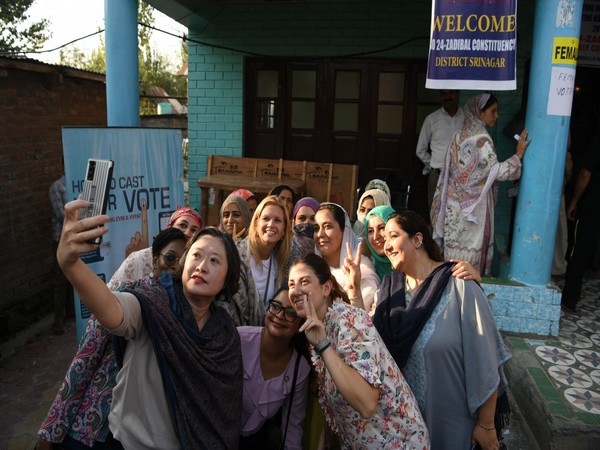
New Delhi: A striking contrast was sketched in the security canvas of the two neighbouring nations when India allowed 15 foreign envoys to visit Jammu and Kashmir to witness the second phase of the Assembly polls in the Union Territory while in Pakistan the government failed to secure the movements of diplomats who were targeted by terrorists earlier this week only to narrowly escape.
Jammu and Kashmir, which is holding assembly polls after a decade, recorded 57.31 polling in the second phase of the elections.
This is a strong message sent across the border and to the world by the Indian government which took a decisive stance in 2019 by scrapping the special status that was enjoyed by the politically crucial region.
The foreign delegation included representatives from Mexico, Korea, Somalia, Spain, Singapore, Nigeria, Philippines, Tanzania, Norway, Panama, Algeria, Rwanda, and South Africa. It visited several polling stations in the UT to assess the situation.
The visit shows a major shift in New Delhi's approach which previously discouraged such visits in the region that has been a centre of conflict between India and Pakistan since the two nations were formed in 1947.
Despite recent terror attacks in Jammu and Kashmir, the Indian government deserves appreciation for conducting the polls without any hindrance and maintaining tight security so far with people now eyeing to vote in the third phase of the elections.
If Kashmir drew a picture of positivity and vibrancy, the recent attack on a delegation of foreign diplomats in Pakistan cast doubt on the future of the country that has witnessed a spike in terror attacks in recent times.
The shocking attack took place in Swat this Sunday when the diplomats providentially escaped but one policeman died in the explosion.
Diplomats from various nations, including Russia, Uzbekistan, Turkmenistan, Kazakhstan, Bosnia, Vietnam, Ethiopia, Rwanda, Zimbabwe, Indonesia, and Portugal, were part of the convoy which was travelling to Swat to attend a business meeting when it hit a roadside bomb.
Swat remained a hotbed of terror activities for several years now.
A report published by the US government in 2022, acknowledged the spike in terror activities in the country.
The report said: "Pakistan experienced increased terrorist threats in 2022. The number of attacks and casualties was higher than in 2021. Major terrorist groups that focused on conducting attacks in the country included the TTP, the Balochistan Liberation Army (BLA), and ISIS-K."
"Separatist militant groups conducted terrorist attacks against varied targets in Balochistan, Punjab, and Sindh provinces. TTP posed a significant threat to Pakistani police, military, and security services in Khyber Pakhtunkhwa province," the report said.
"In attacking various targets, terrorists used a range of tactics, including IEDs, VBIEDs, suicide bombings, and targeted assassinations," the report had said.
The attack on the convoy is a grim reminder that the situation did not improve in Pakistan even after a new government came to power earlier this year after a long political battle that even saw its former Prime Minister Imran Khan landing in jail.
The Pakistani government should learn from the Swat incident and from the remarkable task performed by India across the border.
Attack on foreigners is not new in Pakistan and the fresh incident shows the country has not taken lessons from its previous mistake.
Earlier, Baloch separatists and terrorists mostly targeted Chinese nationals and projects but Swat's event was an exception.
In its Editorial, Dawn News said: "Investigators need to look at all angles; there is also a possibility that hostile foreign actors were involved. As mentioned earlier, the targeting of so many foreign dignitaries would have resulted in massive worldwide humiliation for Pakistan."
If India can welcome foreign delegates and show the result of strong governance, security and celebration of democracy, which enabled the nation to successfully conduct polls, then Pakistan should try to match up to the examples being set by its neighbour.